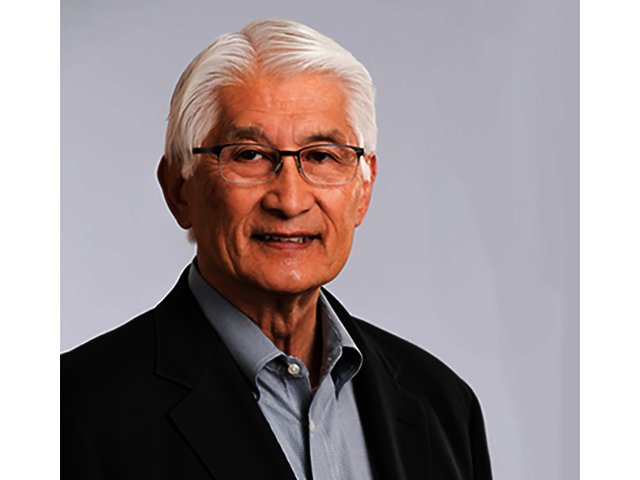Interview: Hu Yoshida, Hitachi Vantara - The Importance of IoT
By Ryan Noik 8 December 2017 | Categories: interviews
Where is IT going and how is it being affected by the often-discussed Internet of Things (IoT) megatrend? Why does IoT matter? What should businesses be changing within themselves to take advantage of the opportunities it portends? These are some of the questions that Hu Yoshida, the chief technology officer for Hitachi Vantara, Hitachi’s data division, answered in an illuminating interview.
Refreshingly, it is with optimism that Yoshida began, most particularly about the IoT, and the role it can play in moving business and society forward. He notes that IoT is driving a distributed paradigm for IT and computing. In order to understand what that looks like, it’s necessary to refer to a term bandied about quite often when discussing IoT - “the edge”. Put simply, this refers to where the bulk of computing sits. Rather than in a centralised data centre, IoT’s computing happens at the periphery of the network and as close to the data as possible, whether that is in sensors placed all over a city, in users’ smartphones, or in smart cars that populate the streets.
This distributed paradigm of computing, he explains, will open up a lot of new opportunities across the board. For the company itself, Yoshida explains that it heralds new potential business models and revenue streams. In a grander sense, he anticipates IoT making the world healthier, better, smarter and, particularly relevant given the current global turmoil, safer as well.
Tech booms, but productivity lags
For businesses across the board, IoT and its distributed computing model, also brings with it a profound change. One of these is that businesses’ focus is no longer just on products, but rather on business outcomes.
He elaborates that in the last ten years, there has been an explosion of technology, but if one looks at the productivity statistics from the Office of Economic Cooperation and Development (OECD), you notice that the productivity in most nations has decreased despite all this technology. “The reason for that is we are having to really transform the business models to be able to use the new technology in new ways,” he adds.
Yoshida gives an example of electronic banking via a mobile app. While the app itself may tick all the right boxes such as being easy to use, if users apply for a loan and it still takes three weeks for it to be processed, then this indicates that the bank’s ‘back office’ has not transformed to take advantage of the technology. Exacerbating matters is that the bank in question may well be competing with fintech companies such as LoanMe.com and LendingTree.com, which can process a loan in 48 hours. It doesn’t take much imagination to predict who will be the winner in that scenario.
A call to change
Beyond that singular example, he asserts that IT is going to have to change, focusing less on increasing its efficiencies – which have already grown considerably – and more upon the company's productivity that will drive business outcomes. The good news is that this has become more doable in recent years, as open source software allow companies to develop and deliver microservices quickly.
Yoshida cites Hitachi Vantara’s own analytics programme, Pentaho, as an example of how the company has used open source contributions to get to market faster. He explains that Pentaho integrates data sources, with the connectors that is uses to do so being provided by the open source community. “This meant that we did not have to spend all our resources in providing our own proprietary solution. Instead, we could accept those open source contributions, prioritise them and provide services around them. This in turn greatly shortened the time needed to get to market with solutions that are relevant,” he explains.
The value within
Yoshida continued that IoT’s value, therefore, can be found in the fact that it allows organisations to have a 360 degree view of their entire business and garner valuable information about its operations and its customers. It can then more effectively respond to its customers and create new business models that deliver value to both the business and its end users.
“When people think of IoT they tend to think of highly automated industries and frankly yes, the big money is there in the manufacturing, transportation, communication and life sciences side. But there are opportunities in all sectors as well, even in the more manual sectors such as agriculture, where data around weather, soil condition and commodities could provide better business outcomes to farmers, for example,” he elaborates.
Making a difference
For Yoshida and Hitachi, IoT’s benefits aren’t strictly limited to increasing bottom lines. Rather, he explains, the company has a focus too on social innovation, where technology is used to make the world a better, smarter and safer place.
To this end, given the concerns around climate change and how carbon dioxide emissions are affecting the planet, the company is assisting Copenhagen in its quest to become carbon neutral by 2025. Making that goal a reality, however, means the city needs access to information about transportation, factory manufacturing, the weather, as well as traffic.
It also needs to be able to bring this data together for use by a variety of participants, from large companies and enterprises to universities and app developers. The latter can then develop apps to be able to make the city run more efficiently and thus reduce its carbon footprint. “Being able to see implementations of IoT where we can see social impact as well as the increase in revenues is ultimately what brings me the greatest satisfaction,” Yoshida concludes.
Most Read Articles

Have Your Say
What new tech or developments are you most anticipating this year?



